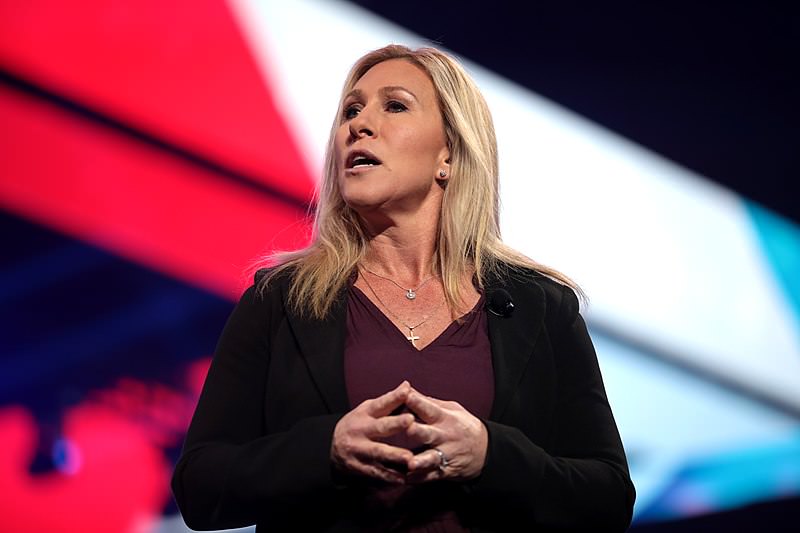Politics
Marjorie Taylor Greene avoids disqualification over Jan. 6 role by Supreme Court decision
By Jake Beardslee · March 5, 2024
In brief…
- The Supreme Court's recent decision blocking states from barring candidates over involvement in the Jan. 6 attack also shields members of Congress facing similar challenges to their eligibility.
- Over 130 Republicans faced efforts to disqualify them for purportedly attempting to overturn the 2020 election results.
- A Georgia judge had allowed a case questioning Rep. Marjorie Taylor Greene's eligibility to proceed based on her alleged involvement in the Capitol riots.

The Supreme Court’s decision that Donald Trump cannot be barred from the 2024 presidential ballot due to the Insurrection Disqualification Clause has shielded other Republicans tied to the January 6th attack from facing similar challenges, according to legal expert Peter Shane of New York University.
In April 2022, a Georgia judge allowed a case questioning Rep. Marjorie Taylor Greene’s eligibility for office to proceed, based on her alleged involvement in the Capitol riots. As Newsweek reported, over 130 Republicans faced disqualification efforts for purportedly attempting to overturn the 2020 election results.
However, the Supreme Court unanimously ruled that individual states cannot unilaterally decide which candidates are permitted to run for president. This decision overturned a lower court verdict that had deemed Trump ineligible for the Colorado ballot under the 14th Amendment’s Insurrection Disqualification Clause, which bars insurrectionists from holding federal office.
“By deciding that states may not disqualify oath-breaking insurrectionists from running from any federal office, not just the presidency, the majority has let off the hook any members of the last Congress who might yet be implicated in the January 6-related prosecutions,” Shane told Newsweek. He added, “Thus, for example, the state of North Carolina could not have disqualified Madison Cawthorn, and other states could not disqualify incumbent representatives and senators no matter what their role leading up to January 6.”
The ruling implies that enforcing the Insurrection Disqualification Clause against federal candidates now requires specific legislation referencing that clause, rather than being applied directly by states. As Shane explained, the Supreme Court majority “seems to say that Section 3 enforcement against federal candidates or officers needs to be based on a statute specifically tailored to Section 3.”
In her own disqualification case last year, Greene had argued that the law voters used to challenge her eligibility was unconstitutional. However, Judge Amy Totenberg rejected Greene’s request for an injunction, stating she failed to meet the required “burden of persuasion.” Greene had “vigorously denie[d] that she aided and engaged in insurrection to obstruct the peaceful transfer of presidential power,” according to her lawsuit.